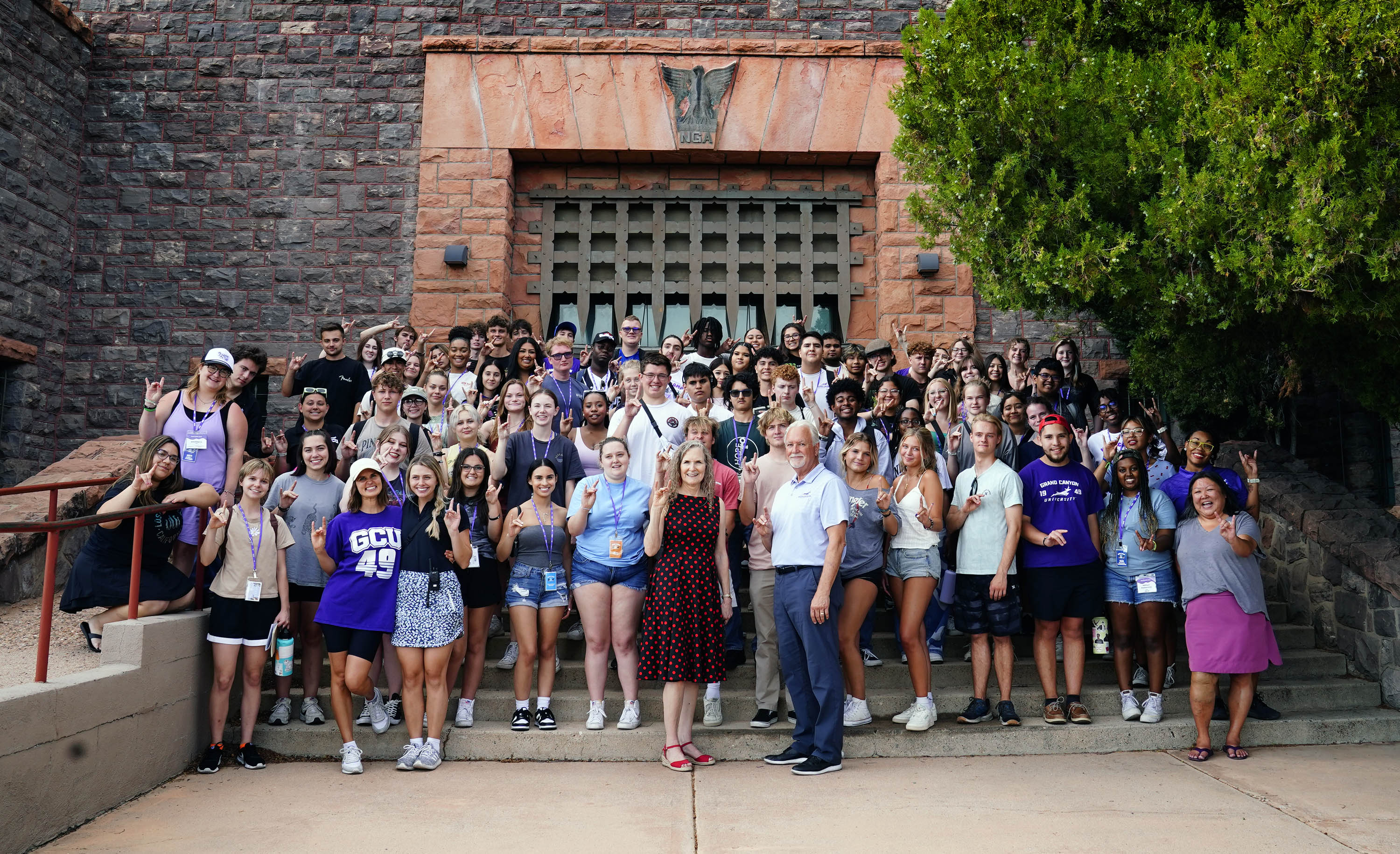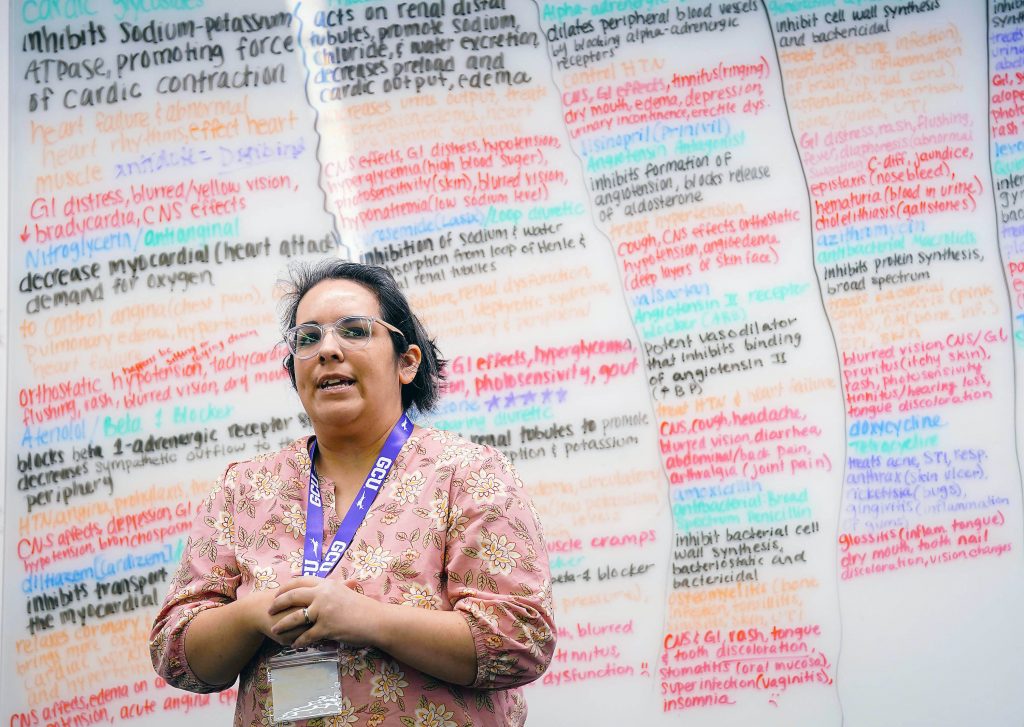
Photos by Ralph Freso
A detective in the film “The Imitation Game” asked Alan Turing, the father of modern computer science, “Could machines ever think as human beings do?”
“Of course, machines can’t think as people do. A machine is different from a person. They think differently,” answers Turing (played by Benedict Cumberbatch). “The interesting question is, just because something thinks differently from you, does that mean it’s not thinking?”
Another interesting question, “If a machine is able to think, does that make it human?” Even more intriguing: “What makes a human, human?”
Dr. Lanell Mason, an instructor in philosophy and Christian worldview at Grand Canyon University, pondered the same questions in her talk, “The Non-Identity of Human Beings and Artificial Intelligence,” on Friday at GCU.
Her presentation was one of 48 at the annual meeting of the Far West Region of the Evangelical Theological Society and Evangelical Philosophical Society. The conference, whose region includes Colorado, New Mexico, Utah, Arizona, Nevada, California and Hawaii, was hosted by Grand Canyon Theological Seminary.
“I imagine many people coming here (for this talk) is because of their interest in AI, particularly if we are concerned about philosophical or theological implications of AI. It’s such a new territory,” said Mason. “… We know that the goal of research is to make AI indistinguishable from human intelligence, and given that, we have questions surrounding how to categorize AI, especially how to morally categorize it, legally categorize it.
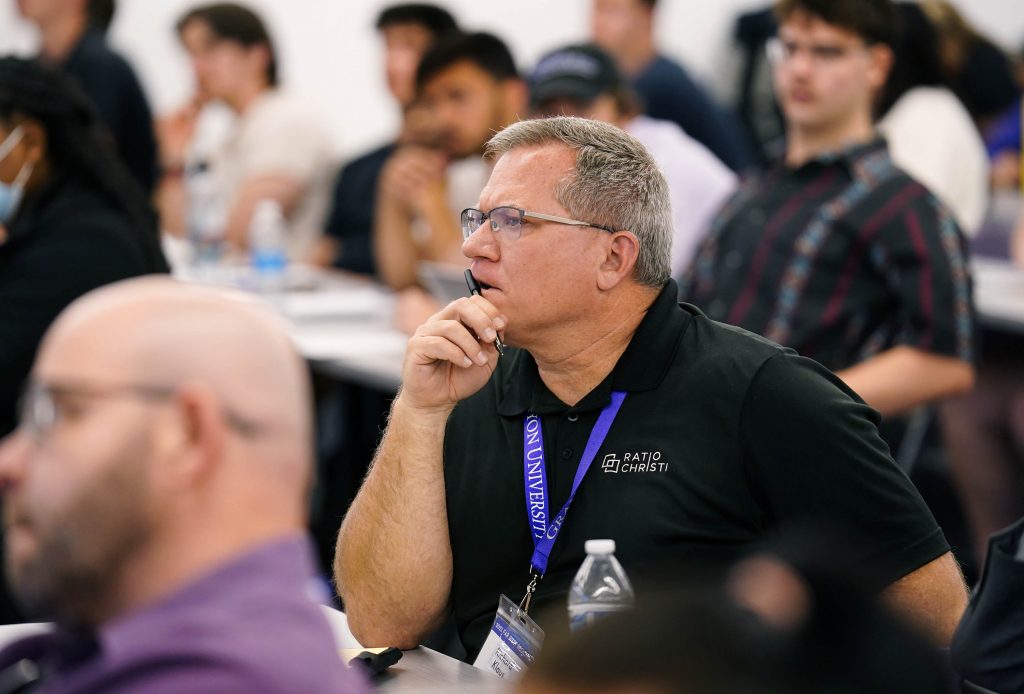
“There’s already people arguing for giving AI human rights, legal recognition.”
Mason, whose talk included philosophical terms such as emergence and phenomenal consciousness vs. functional consciousness, argued that artificially intelligent beings are not human.
She told the story of Krista and Tatiana Hogan to illustrate what constitutes an individual, conscious being. The Hogan twins have two separate bodies but share a brain. Because they share a brain, they also share experiences, such as touch and taste, and even can control one another’s limbs.
Mason read a story in the New York Times about one of the twins eating a chicken tender and the other tasting it and saying, “Yucky. I don’t like it.”
So although they share some experiences, they do not share all of them, which is indicative of “two separate selves," Mason said.
She also spoke about Canadian philosopher Paul Churchland’s thoughts about what constitutes a conscious being: “Churchland thinks that as long as AI are computationally comparable, computationally similar to human beings” and that those computations “give rise to humanlike behavior, then you have what would essentially be the same thing (human or humanlike consciousness).”
She spoke about how ChatGPT, an artificial chatbox that can write essays and poems and can do math problems, and a neural-network AI model called Gato, by DeepMind, are functional in their thinking: They accept an input given by a human then output an answer.
According to Churchland and functionalists, AI could be considered as being conscious because they fulfill those requirements of function leading to humanlike behavior.
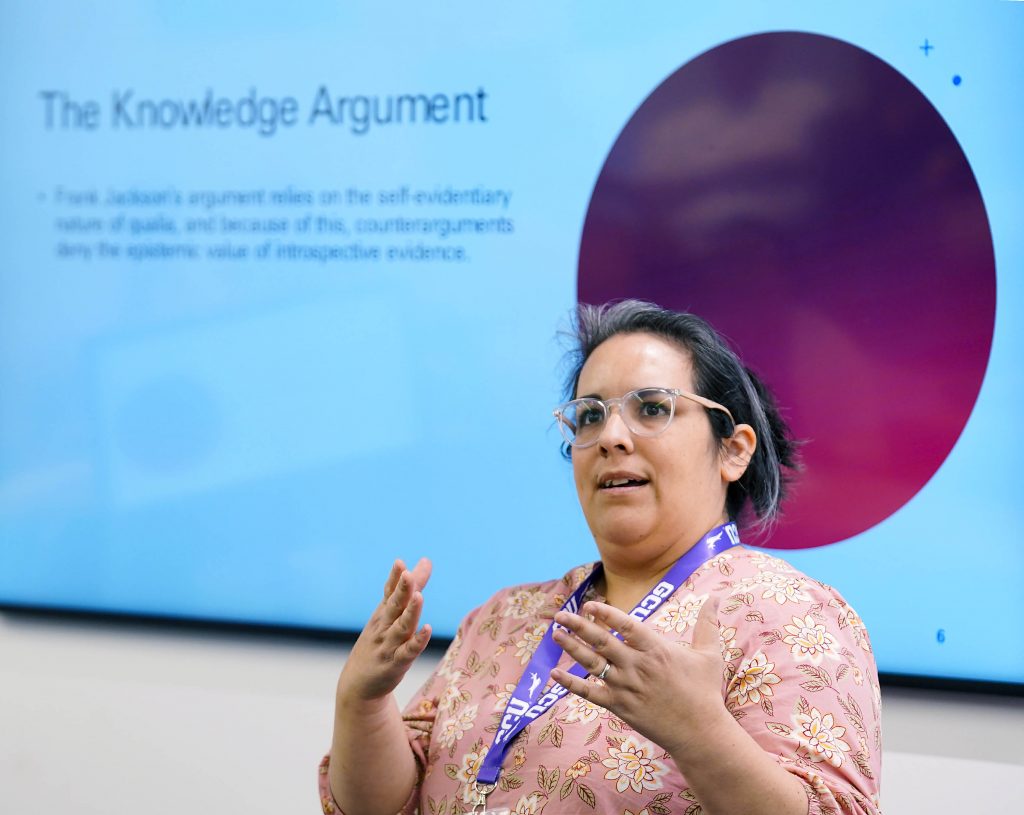
But Mason argues, “Human consciousness is not a functionalist form of consciousness.” Humans need experiences to gain knowledge and foster beliefs, which “is indicative of human beings possessing souls.”
She added, “The concluding point of what distinguishes a human being from AI is humans possess souls.”
In addition to Mason’s talk to a packed classroom in Building 5, attendees at Friday’s conference also could drop in to hear talks such as “How Lucifer Became Satan,” “The Biblical Dead Sea Scrolls 101,” “Psychiatry and the OCD Church Member” and “The Phrase ‘I Am the LORD your God’ as a Slogan in the Book of Deuteronomy.”
They also listed to a keynote by Dr. Vincent Bacote of Wheaton College, who spoke about the church’s role in public life.
Outside of GCU, speakers came from 11th Street Baptist Church, Southern California Seminary, California Baptist University, Phoenix Seminary, Wayland Baptist University and Colorado Christian University, to name a few.
Nineteen of the papers presented — about 40% — were by the University’s faculty and the faculty of GCTS, the graduate school of GCU’s College of Theology.
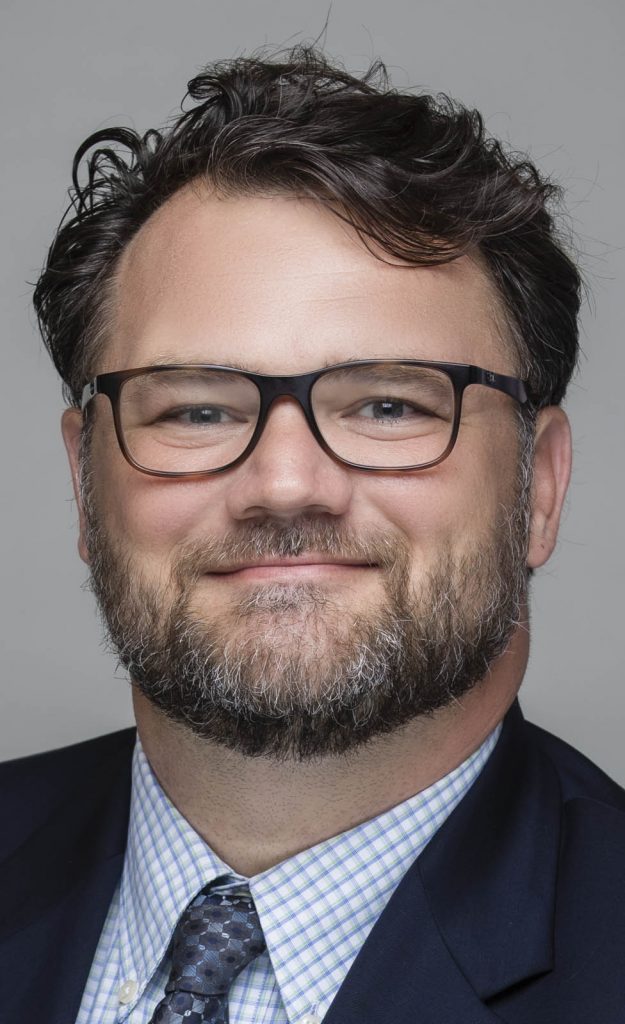
Dr. Justin McLendon, a GCTS faculty member who during the conference became president of the Evangelical Theological Society’s Far West Region for 2023-24, was the program chair for the conference, which was last held at GCU in 2018.
“This was a good opportunity to showcase the scholarship of our faculty as well as GCTS as a leader among its peer institutions,” said Dr. Paul Smith, assistant dean of the seminary, which is embarking on a new era as a physical space for the school will open to its first ground students in the fall.
Many of the papers presented are often first drafts of planned books or scholarly articles, Smith said, “so this is an opportunity for people to test out arguments, get feedback and hear cutting-edge scholarship.”
One of the presenters sharing that cutting-edge scholarship was GCTS Associate Professor Dr. Pete Charpentier. His talk was on “Is There a Relationship Between the Mercy Seat and the Throne of Grace in Hebrews 4:16?”
His argument: There is.
Charpentier took an audience through how Scripture describes God’s throne. Sometimes the throne is mentioned in connection with God’s attributes. Psalm 47:8 says, “God sits on His holy throne,” while Hebrews 4:16 says it is a “throne of grace.” Other passages refer to God’s eternality or His reign in describing the throne, and others describe it in terms of appearance, such as in Ezekiel 1:26, which says it looks like sapphire stone.
“I think primarily in Scripture it focuses on God’s qualities, His attributes, as well as His work, which points to His sovereignty, His absolute sovereignty, over all things,” Charpentier said of how the throne is described in relationship to God.

He also spoke about the mercy seat, the cover on the Ark of the Covenant, where God’s commandments were stored. The ark was the physical manifestation of God’s presence and power. It was so sacred that only the high priest was allowed to be in its presence once a year. Merely touching it meant death.
Two cherubim faced each other on the mercy seat, acting as heavenly guards for God’s presence, and it was between these cherubim that God spoke to his mediary, Moses.
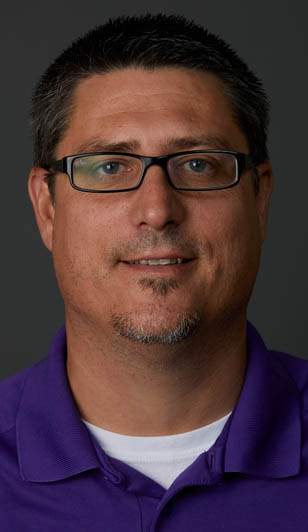
“It seems like at the mercy seat is a convergence of themes that sort of combine together. You have God’s holiness, that’s obviously a part of it. You have God’s majesty, that’s obviously a part of it, and then, of course, it’s crucial to think about God’s redemption.”
Charpentier asks, “Does the mercy seat tie into the idea of God’s throne? It does in seven places in the Old Testament.”
God is described as being enthroned on the cherubim, which “clearly shows the mercy seat in some way functioning as a throne, if you will, for God’s holy, majestic presence.”
Smith said talks such as Mason’s and Charpentier’s provided cutting-edge scholarship not only to members of the Evangelical Theological Society and Evangelical Philosophical Society but to GCU’s students, too. He estimates more than 100 of the University’s students attended at least one presentation.
“The strong presence by GCTS/GCU faculty illustrate the strength of the faculty and its leadership in advancing scholarship.”
Added McLendon, “The Christian faith is an informed faith, so intellectual inquiry not only forms discipleship, it nudges us to consider diverse perspectives on complicated topics. Theological formation is best achieved in community, and this conference provided students an opportunity to participate and learn from others.”
GCU Manager of Internal Communications Lana Sweeten-Shults can be reached at lana.sweeten-shults@gcu.edu or at 602-639-7901.
Related content:
GCU News: Seminary's new home to be a game-changer in the West Valley
GCU News: Pastoral program's 1st year was quite a get-together
GCU News: Students hear God's call, flock to Barnabas program






